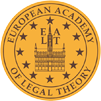In 2013 and 2014 the European Academy of Legal Theory offered an Erasmus Intensive Programme on Text and Normativity in the context of Global Law, with the University of Lucerne as a Programme coordinator for this initial EALT Global Law school. For more information on these past events please follow the links on the right.
Currently, the Université Libre de Bruxelles (ULB) offers a Global Law intensive study programme in cooperation with the Academy and its LL.M. Programme: Global Law Week
Download
Archive
Diclaimer: This teaching module is funded with support from the European Commission (Lifelong Learning Programme, Erasmus Intensive Programmes). This website reflects the views only of the author, and the Commission cannot be held responsible for any use which may be made of the information contained therein.
Global Law - Text and Normativity in a Global Context (GL-TeNOR)
University of Lucerne
26th January - 7th February 2014
Introduction
GL-TeNOR is a two-week Erasmus Intensive Programme (IP) providing new and innovative approaches to the study of global law. The course is organised under the aegis of the European Academy of Legal Theory and jointly offered by the following partner universities:
- University of Lucern (coordinating institution)
- University of Frankfurt/Main
- University of Vienna
- Université Libre de Bruxelles – ULB
- University of Stockholm
- Jagiellonian University Cracow
- Freie Universität Berlin
- Globalisation and Legal Theory PhD Programme (Univ. of Antwerp, Glasgow, and Tilburg)
- Università degli studi di Palermo
The GL-TeNOR Module 2014 will take place from 26th January to 7th February 2014 at the University of Lucerne.
Programme
The IP GL-TeNOR combines the University of Lucerne’s key research programme ‘Text and Normativity’ with the expertise of partner institutions in questions of the globalisation of law and the development of a new, corresponding theory of law, so as to foster an innovative approach to teaching and research into the fundaments of the formation, legitimacy and effect(s) of a constitutive ‘global law’. The curriculum of the programme is designed to equip students with a deeper understanding of the principles and methodologies of global law, not just in a legal sense but also in interdisciplinary perspectives which do fuller justice to complex modern-day social, political and legal exigencies.
In 2012/13, the empirical and normative prerequisites for the development and canonisation of a ‘global law’ were explored under the general theme of ‘Canon and Canonisation of Global Law’. Questions such as the following were examined in close detail: how, in precise terms, does global law develop? Which new border-crossing constellations of actors are involved in its settlement, canonisation and enforcement? What are the possible grounds of its legitimation? In 2013/14, the IP will look to address similar and new questions under the heading of ‘Constitutionalisation of Global Private Law Regimes‘. The study focus aims at clarifying the question of how, despite the absence of a corresponding hierarchy of global norms, the unity of (global) law must be approached. The term ‘constitutionalisation’ is, in this context, to be understood both on the one hand as the fixing of global law to fundamental core values (ius cogens) and on the other in terms of its embeddedness in relation to existing regulatory structures (e.g. the relationship of global law to systems of national and international law). The concept of constitutionalism shall thus serve as a chiffre under which an inquiry into new meta-rules determining the creation of legal unity on the global level might be conducted.
Participation
Participation is open to law, social sciences and humanities students (Masters and Doctoral level) enrolled at one of the partner universities. Applications are to be made directly to the GL-TeNOR contact person at the home institution. All partner universities apply a common selection policy, taking account of academic excellence, international experience, gender equality and equality of people with disabilities.
Fees and Grants
Successful applicants will be awarded a grant covering tuition fees and travel costs, and a daily housing subsistence lump sum. In exchange, students are expected to attend all sessions during the programme, and to actively contribute to course exercises and discussions.
ECTS
Participation in GL-TeNOR is part of the official course programme of the partner universities involved. Participating students are entitled to receive academic recognition in case of successful completion of all course requirements: GL-TeNOR comprises 9 ECTS credits.
Online Platform
The course is guided by an online e-learning platform (OLAT). Access rights for the online GL-TeNOR course will be granted to successful applicants.
Applications
Candidates wishing to apply for participation in the IP GL-TeNOR must complete the official application form and send it, together with a CV, to their local GL-TeNOR coordinator by 15th November 2013. Successful applicants will be notified by December 2013.
For further information please contact your local GL-TeNOR coordinator:
- University of Stockholm: Mauro Zamboni
- Freie Universität Berlin: Juliane Ottmann
- University of Vienna: Marina Brandtner
- Université Libre de Bruxelles – ULB: David Restrepo
- University of Lucerne: Steven Howe
- University Frankfurt/Main: Lorenz Schulz
- Jagiellonian University Cracow: Wojciech Cyrul
- Globalisation and Legal Theory PhD Programme: George Pavlakos
- Università degli studi di Palermo: Pietro Denaro
- University of Lucern (coordinating institution)
- University of Frankfurt/Main (hosting institution)
- University of Vienna
- Université Libre de Bruxelles – ULB
- University of Stockholm
- Jagiellonian University Cracow
- Free University of Berlin
- University of Stockholm: Mauro Zamboni
- Free University of Berlin: Juliane Ottmann
- University of Vienna: Marina Brandtner
- Université Libre de Bruxelles – ULB: David Restrepo
- University of Lucerne: Annja Mannhart
- University Frankfurt/Main: Lorenz Schulz
- Jagiellonian University Cracow: Wojciech Cyrul

